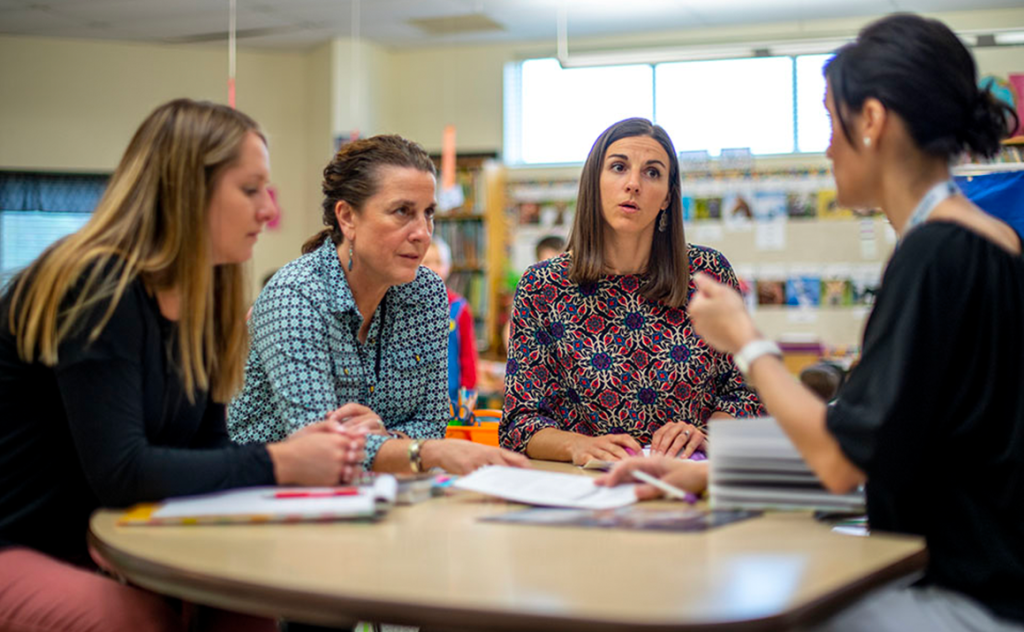Educational Leadership (M.Ed., Ed.S.)
Graduate programs for educators interested in building skills for school leadership at the building or district level.

Program overview
Our Educational Leadership graduate programs are designed for educators interested in building skills for effective school leadership and administration. Our Master of Education (M.Ed.) program is for those just beginning graduate study, while our Education Specialist (Ed.S.) program is a terminal degree that offers opportunities beyond the master’s level. Students in the Ed.S. program will be positioned to apply for a variety of school district-level leadership and director positions. While it does not require a dissertation, the Ed.S. degree program can help develop research skills.
NOTE: We are not currently admitting students directly into the Education Specialist program. For more information, contact program coordinator Maria Frankland, maria.frankland@maine.edu.
Whether you decide to undertake our programs as part of a cohort or design your own course of study with a faculty advisor, our students are part of a learning community in which both professors and students construct the experience together. Coursework includes simulation, reflective journals, observation and feedback in practice, and examination of group dynamics, as well as conventional graduate-level learning activities, all sequenced to build leadership skills. All coursework is aligned with Maine Department of Education competency areas for leadership certification.
Contact Us
For questions about choosing the best cohort for you, please contact Program Coordinator and Lecturer in Educational Leadership Maria Frankland, maria.frankland@maine.edu. You can also use the Graduate School contact form below.
For general queries, coehd@maine.edu.
